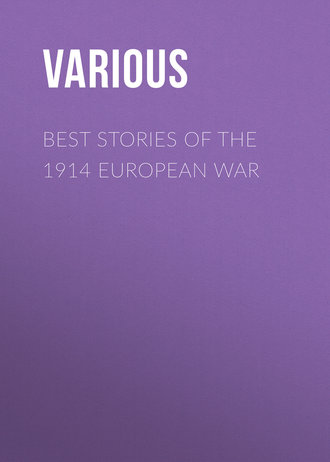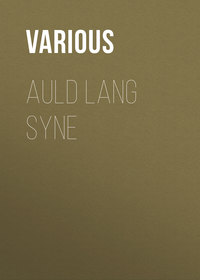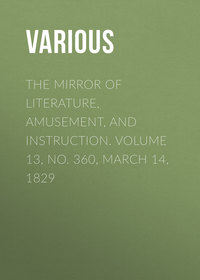
Best Stories of the 1914 European War
“We had ten in our company. They were all good fighters, but six won’t be seen again.”
“KILL FOE OR WE WON’T MARRY!”
All of Servia is enthusiastic in regard to the campaign for the conquest of territory from the Austrians.
One of the most remarkable features is the ardent enthusiasm displayed by the Servian women. Many of them have taken a pledge not to love a man who has not killed at least one of the enemy.
A CLOSE CALL
The correspondent of the London Chronicle says:
“In – the stationmaster, a brave old type, and one or two porters had determined to stay on to the last. ‘We are here,’ he said, as though the Germans would have to reckon with him, but he was emphatic in his request for me to leave at once if another train could be got away, which was very uncertain. As a matter of fact, after a bad quarter of an hour, I was put on the last train to escape from this threatened town, and left it with the sound of German guns in my ears, followed by a dull explosion when the bridge behind me was blown up.
“My train, in which there were only four other men, skirted the German army, and by a twist in the line almost ran into the enemy’s country, but we rushed through the night and the engine driver laughed and put his oily hand up to salute when I stepped out to the platform of an unknown station. ‘The Germans won’t get us after all,’ he said. It was a little risky all the same.
“The station was crowded with French soldiers and they were soon telling me their experience of the hard fighting in which they had been engaged. They were dirty, unshaven, dusty from head to foot, scorched by the August sun, in tattered uniforms and broken boots, but they were beautiful men for all their dirt, and the laughing courage, quiet confidence and unbragging simplicity with which they assured me that the Germans would soon be caught in a death trap and sent to their destruction filled me with admiration which I cannot express in words.”
WAITING FOR THE GERMANS
A correspondent of the London Daily News cables his paper:
“From all I hear of the progress of the German advance the Germans were in Amiens on Sunday. The city was evacuated and the railway tunnel blown up. I judged it would be useful to visit the little town of Beauvais, twenty miles almost due south of Amiens on the road from Dieppe to Gournay.
“Crossing the bridge by the railway station, a French dragoon laughed when he saw our startled look at what rested below against the bridge supports. They are waiting for the Germans.
“The streets were strewn with broken glass bottles and barbed wire entanglements were coiled everywhere. The little place is in a hollow. One wanted but slight imagination to the flaming hell it could become at any moment.
“It was growing dusk, and I suppose I have never before felt such an urgent desire to leave a town.”
STUCK TO THE BATTERY
In a statement issued by the British War Office the following incidents have been mentioned:
“During the action at Le Cateau all the officers and men of one of the British batteries had been killed or wounded with the exception of one subaltern and two gunners. These continued to serve one gun and kept up a sound, raking fire and came out unhurt from the battlefield.
“On another occasion a portion of a supply column was cut off by a detachment of German cavalry. The officer in charge was summoned to surrender. He refused and, starting the motor off at full speed, dashed safely through, only losing two lorries.”
HORSESHOER’S FEAT
The Paris correspondent of the London Chronicle telegraphs:
“In the fighting at Compiègne, when the British captured several German guns, the Dragoon Guards did wonderful work. There was one tremendous cavalry charge, in which these dragoons were accompanied by their farrier, armed only with his hammer, which he wielded with deadly effect, according to the men.”
“TOO COMMUNICATIVE”
An amusing instance of the thoroughness of the German censor was shown by a letter received the other day by a woman whose husband, an American business man, is temporarily detained in Berlin.
The envelope was addressed in her husband’s handwriting and was stamped with the censor’s official seal. Inside the envelope was a slip of paper on which was scrawled in a queer-looking foreign script:
“Your husband, madam, is well, but too communicative.”
BOMB HIS CALLING CARD
A correspondent of Le Petit Journal relates a characteristic interview with Jules Vedrines, the well-known airman, who already has done distinguished service, but finds the service monotonous because he is not allowed more activity. His work is confined to reconnoitering for the troops and artillery. He says:
“If only they would let me go and leave my visiting card with Emperor William!”
RETREAT OF DIPLOMATS
“It was a unique sight,” says the Paris correspondent of the London Daily Chronicle, “when the members of the foreign embassies and legations quit Paris for Bordeaux. They left in the dead of night and their only illumination was moonlight.
“There was Sir Francis Bertie, in a black suit and bowler hat, talking to the Italian Ambassador, who, with Signor Tittoni, were distinguishable figures in gray and with soft felt hats. Myron T. Herrick, the American Ambassador, had come down with his wife to say good-by to his confrères, and M. Isvolsky, the Czar’s envoy, was chatting with the Spanish Ambassador, who, like Mr. Herrick, is remaining in Paris to perform the duties of courtesy that fall upon neutrals at such a time.
“The windows of each carriage of the special train were labeled with the names of the countries whose representatives it was carrying off. There was even an inscription for the more or less imaginary republic of San Marino, but no one appeared to answer to this honorific name. There were the Persian Minister and M. Romonos, a black-bearded Greek, and the Russian military attaché, in uniform, and les braves Belges, and all sorts of servants, including a Chinese nurse, who was feeding a yellow baby that had coal black eyes.
“At last a horn was blown and the train rolled away.
“Say what you like, it is no pleasant thing to see the world’s delegates pack up their traps and leave the splendid city of Paris to its fate.”
“GERMANS WENT MAD”
A priest of Termonde describing the destitution of that town to a correspondent, said:
“When the Germans attacked the town we had no guns. Our gendarmes and soldiers fought at two or three places and drove the Germans back for the moment, but with their numbers and equipment they could not help but win. Our men retired in good order and blew up the bridges as they retired. Nearly all the inhabitants left ahead of the troops. Some, including myself, stayed and crossed the river in boats yesterday.
“The Germans had entered in the night and set the town afire. The German soldiers seemed to go mad. They ran about setting the houses alight and shouting, ‘This is how we will burn Antwerp in three days!’ Nobody seemed to be in command, but I suppose that the burning was ordered.”
WOMEN NURSES IN BREECHES
“Among a party of nurses who left Folkestone for the front,” says the London Daily Mail correspondent, “were a number of women wearing riding breeches and spurs and long coats and helmets similar to those worn in the tropics.
“Their duties will be to ride over the battlefield and look for the wounded and render first aid, after which other nurses will convey the stricken soldiers to the base hospital in motor cars. It is pointed out that many wounded have died owing to not having received immediate attention.”
AUTO ROUGH RIDERS
“Wealthy young Belgians have done great work,” writes a correspondent from Antwerp, “by dashing at the German lines in armored automobiles, each of which carried a single machine gun. In one instance one of these cars stopped for lack of gasolene just as it reached a German patrol. A daring young Belgian jumped out and filled the tank, and although bullets fell about him, he reëntered the car uninjured and the machine started forward again, while the mitrailleuse was working constantly.”
FIRST AID BY POLICE DOGS
Police dogs are being used in this war in Red Cross work for the first time, says a Paris correspondent. They are reported to be giving excellent results. They have been trained to discover the wounded man and to bring his cap or another piece of his wearing apparel back to the headquarters of the Red Cross, and then to lead a nurse to the place.
FLEEING FROM PARIS
Describing the flight from Paris, when the people feared the Germans were about to attack the capital, a correspondent says:
“This great army in retreat was made up of every type familiar in Paris.
“Here were women of the gay world, poor creatures whose painted faces had been washed with tears, and whose tight skirts and white stockings were never made for a long march down the highways of France.
“Here, also, were thousands of those poor old ladies who live on a few francs a week in the attics of the Paris streets, which Balzac knew; they had fled from their poor sanctuaries and some of them were still carrying cats and canaries, as dear to them as their own lives.
“There was one young woman who walked with a pet monkey on her shoulder while she carried a bird in a golden cage. Old men, who remembered 1870, gave their arms to old ladies to whom they had made love when the Prussians were at the gates of Paris then.
“It was pitiful to see these old people now hobbling along together. Pitiful, but beautiful, also, because of their lasting love.
“Young boy students, with ties as black as their hats and rat tail hair, marched in small companies of comrades, singing brave songs, as though they had no fear in their hearts, and very little food, I think, in their stomachs.
“Shopgirls and concierges, city clerks, old aristocrats, young boys and girls, who supported grandfathers and grandmothers, and carried newborn babies and gave pick-a-pack rides to little brothers and sisters, came along the way of retreat.
“Each human being in the vast torrent of life will have an unforgettable story of adventure to tell if life remains.”
THEIR PICNIC SPOILED
The French troops are brave and fearless but too impetuous, says a correspondent of the London Daily Chronicle. He adds:
“Careless of quick-firers, which experience should have taught them were masked behind the enemy’s advance posts, they charged with the bayonet and suffered needlessly heavy losses during the fighting at Creil and Compiègne. One can only admire the gallantry of men who dare to charge on foot against the enemy’s mounted men and who actually put a squadron of them to flight, but one must say again: ‘C’est magnifique, mais ce n’est pas la guerre.’
“There have been many incidents of heroism in these last days of fighting. It is, for instance, immensely characteristic of the French spirit that an infantry battalion, having put to flight a detachment of German outposts in the forest of Compiègne, calmly sat down to have a picnic in the woods until, as they sat over their hot soup, laughing at their exploit, they were attacked by a new force and cut to pieces.”
PAINT HORSES GREEN
“The Russian Cossacks have painted all their white and gray horses green, making them harmonize with the foliage, so that their movements cannot be seen by scouting aeroplanes,” says a London correspondent. This plan was first adopted by the British in the struggle with the Boers.
ENTERED GERMAN HARBOR
The correspondent of the London Standard tells how destroyers and submarines of the British fleet by close surveillance discovered the passage between the mines which the German destroyers used in coming out to the North Sea. With that information a flotilla of submarines and destroyers proceeded to round up the German ships. When the operation was finished the British vessels returned to their base with the exception of one submarine.
There was much anxiety as to the fate of this vessel, and as nearly a day passed without any news of her the fleet began to conclude she had been lost. Just as this fear began to be viewed as a certainty the submarine came calmly into the midst of the fleet and asked to be replenished.
The excitement among the bluejackets at the return of the wanderer spread to every ship. The questions on every lip were, “Where has she been and what has she been doing?” The explanation was soon forthcoming, and all who heard it were thrilled at the daring feat accomplished by the commander and crew.
The submarine actually had penetrated into the harbor of Bremerhaven, where she fired two torpedoes. The Germans were panic-stricken, in the midst of which the submarine went to sleep on the bottom of the harbor. For hours the ship and crew remained there while the harbor was being trawled, but the nets fortunately passed over her. As soon as he considered it was safe the commander gave orders to proceed out of the German harbor, the submarine returning across the North Sea without mishap.
HE KNEW CONEY ISLAND
A newspaper correspondent made a motor trip to Brussels and tells of being ambushed by Germans. He says:
“We first sighted Germans when approaching a railway grade crossing outside of Aerschot. There were a hundred of them waiting for us behind a hedge, with rifles leveled. When a hundred yards away an officer in the trailing gray cloak stepped into the middle of the road and held up his hand and called out:
“ ‘Halt!’
“I jammed on the brakes.
“ ‘Are you English?’ the officer demanded none too pleasantly.
“ ‘No, American,’ I said.
“ ‘I know America well,’ he said. ‘Atlantic City and Niagara Falls and Coney Island. I have seen all your famous places.’
“Imagine standing in the middle of a Belgian road, surrounded by German soldiers who looked as though they would rather shoot you than not, and discussing the relative merits of hotels at Atlantic City with an officer of an invading army.”
“MORE WAITING FOR YOU”
“Why, it’s Kitchener!” gasped the wounded soldiers in St. Thomas’s Hospital, London, as the Secretary of State for War stepped in for a visit of inspection, says a correspondent. Here’s his chat with a trooper of the Royal Irish Dragoons:
“How are you getting on?” asked Lord Kitchener.
“All right, sir,” answered Trooper Craig.
“What’s your regiment?”
“The Irish Dragoons.”
“How did you get that hand?”
“My horse threw me and stamped on it, sir, just before it got killed by a shell in a charge in Belgium.”
“Ah, but you got into them, didn’t you?” Lord Kitchener continued, with a knowing air.
“Oh, yes, sir, we did,” answered the trooper, with a laugh, in which Lord Kitchener joined.
“There are some more waiting for you, you know,” was Lord Kitchener’s parting shot, and again the trooper laughed.
“YES, TAKE A PICTURE”
A curious story in connection with the sacking of Louvain is told by a correspondent of a London paper. M. Pousette, a Swedish diplomat, was there, watching the soldiers looting shops. He talked with a German lieutenant.
M. Pousette had a camera in his pocket. He asked the lieutenant if he could take a picture. The lieutenant, not knowing that M. Pousette had the camera, misunderstood the question, and, waving his hand toward a particularly fine mansion, generously said: “Yes; go in that house. There are a number of good ones there.”
HER FEET HER PASSPORT
A Swedish actress narrates how she was taken for a German spy in Paris, and, not knowing how to proclaim her identity and being surrounded by a shouting mob, she felt quite alarmed. Suddenly a lucky idea occurred to her.
She slightly raised her skirt, and, showing dainty little feet, exclaimed: “You look at this! Do you call these German?”
She was saved and carried in triumph to her hotel.
TRAWLERS WORTHY OF FLEET
The sinking of the Wilson line steamship Runo by a mine in the North Sea is described as follows:
“It was extremely fortunate that the little fleet of four trawlers, homeward bound with their holds full of fish, chanced to be passing almost within hailing distance of the Runo at that moment. The trawlers, regardless of the consequences to themselves, in view of the possibility that there were other mines in the neighborhood, pushed through the wreckage and picked up sailors and passengers who were clinging to timbers and rafts. These were persons who, in the first panic, had jumped overboard or had been blown into the sea. Others were gathered from the decks of the fast sinking ship.
“The Runo, when she struck the mine, tilted at an angle which made it difficult to launch the lifeboats. Only two were launched, survivors said, and these after reaching the water were both overturned by frightened passengers trying to get into them.
“The Runo, after settling by the head, remained in that position for nearly two hours, her bulkheads holding her afloat until 6 o’clock when the bulkheads suddenly gave way, elevating her stern high in the air for a moment, after which she dipped quietly into the depths.
“The work of the trawlers is declared by the Runo’s crew to have been one of the finest episodes of its kind in the history of the sea.”
“NOTHING SEEMS TO STOP THEM”
A London Chronicle correspondent thus describes the irresistible advance of the German troops:
“When I wrote my last despatch it seemed as inevitable as the rising of the next day’s sun that the Germans should enter Paris on that very day.
“They were fighting the British troops at Creil when I came to that town. Upon the following day they were holding the British in the forest of Compiègne. They have been as near to Paris as Senlis, almost within gunshot of the outer forts.
“ ‘Nothing seems to stop them,’ said many soldiers with whom I spoke. ‘We kill them and kill them, but they still come on.’ ”
DIRGE A SIGNAL TO FIRE
Cabling from Paris a correspondent says:
“In the fighting at Dieure the Germans signaled for a masked battery to open fire on the French by having a military band play Chopin’s ‘Funeral March.’ ”
HUMAN SIEVE
A correspondent in Ostend says that among the French wounded in recent fighting was a dragoon with six bullet and three bayonet wounds in the upper part of his body. He was expected to recover.
“PARLEZ VOUS FRANCAIS”
A London correspondent says: “A half-sheet typewritten French dictionary of the most necessary words is carried by all soldiers of the British expeditionary force.”
KAISER STILL BRITISH ADMIRAL
A London correspondent says:
“According to the September Navy List just issued the Kaiser is still an honorary admiral of the British fleet, so it would seem that his resignation has not yet reached Whitehall.”
LIGHT BRIGADE OUTDONE
Private Whitaker of the Coldstream Guards, writing to his fiancée, describes the fighting at Compiègne in the following words, cables a London correspondent:
“You could not miss the Germans. Our bullets plowed into them, but still they came for us. I was well intrenched and my rifle got so hot I could hardly hold it. I was wondering if I should have enough cartridges, when a pal shouted, ‘Up, Guards, and at ’em!’ The next second he was rolled over with a nasty knock on the shoulder. He jumped up and roared, ‘Let me get at ’em!’
“They still came on and when we really did get the order to get at them we made no mistakes. They cringed at the bayonet, but those on our left tried to get around us.
“We yelled like demons, and after racing as hard as we could for quite 500 yards we cut up nearly every German who had not run away. Then we took up a new position.
“Here our cover was not so good. At our left were the cavalry. The enemy’s guns were blazing away and they got to us nicely, but not for long. You have read of the charge of the Light Brigade. It was nothing to our charge.”
KAISER SEES BOMBARDMENT
“A report from Basel confirms earlier statements that the Kaiser watched the Germans bombarding Nancy,” says a correspondent of the London Standard. “Attended at first by a small staff, he took up a position on a hill overlooking the town, just outside the range of the French artillery.
“For several hours the Kaiser stood alone in an isolated spot in the full glare of the sun, his eyes glued to a field glass through which he was following the operations of his army. Finally he walked back to a waiting automobile and was driven away unattended.”
TRAPS 28 GERMANS
From Paris comes the story of the arrival of twenty-eight Prussian prisoners, the first to be seen in the French capital in the present war. It seems they had become separated from their regiment and lost their way. They asked a peasant near Meaux if the Germans had taken Paris and how to get there. The peasant replied that he thought Paris had fallen and would conduct them to the right road. When it was too late the Prussians found he was leading them into the British lines.
ESCAPED WITH A LAUGH
Telegraphing from Sydney, N. S. W., the Reuter correspondent says:
“An attempt was made at Nauru Island, a German possession in the Pacific just south of the equator and near the Gilbert Islands, to seize the British steamship Messina. A German magistrate with a party in a small boat approached the Messina and demanded to go on board her.
“ ‘By whose orders?’ the mate of the Messina asked.
“ ‘By orders of his Majesty, the Emperor of Germany,’ the magistrate replied.
“The mate laughed at the magistrate and ordered full speed ahead, and the Messina soon reached the open sea.”
“WEEL DONE, SANDY!”
“A magnificent Gordon Highlander recently attracted attention at the Gare du Nord,” telegraphs a correspondent from Paris. “He was in fine humor, although he had been wounded in the side in the fighting on the Marne. He had a sword in his hand which, he explained, he had captured from a Uhlan directly after the German had struck him with it, and he had shot his assailant dead.
“Some women of the French Red Cross on their way to the front caught sight of the Scotsman and hurried up to see if he was badly hurt. An animated conversation followed. The Highlander, anxious to express his gratitude to the French Florence Nightingales, hesitated a moment; then he kissed all of them on the cheeks. The crowd cheered delightedly and the nurses were not in the least abashed.”
LIFEBOATS A MINE TRAP
A London correspondent telegraphs the following incident:
“The master of the Grimsby steam trawler Agatha reports that while fishing in the North Sea he sighted a ship’s boat afloat, and supposing that some disaster had occurred went toward it, put out a boat and found the derelict to be a lifeboat supplied with sails, mast and oars. The Agatha tried to tow the prize home, but immediately an explosion occurred, luckily too far distant to harm the trawler.
“A careful examination revealed that a mine had been attached to the lifeboat by ropes and wires in such a manner as to explode and blow up any ship which steamed alongside the lifeboat to pick it up.”
SHOOT POISONOUS GASES
“There is much talk here,” says a Malta correspondent, “of a new German siege gun which kills as much by poisonous gases liberated from the shell as by the solid contents. The gun has a relatively small bore and is easily mounted on wheels.
“The shell is loaded at the mouth of the gun, but a metallic shaft, making a piece with the shell, is rammed tightly into the gun. Shell and shaft are shot together.”
CHILDREN WANTED TO FIGHT
A Bourges correspondent says: “Among the spectators acclaiming the French artillery passing through here were four lads, the eldest about 13. Several marches later the boys were found in a circle of the troops partaking of the mess.









